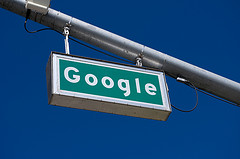Google Settles With FTC, Agrees To Change Anticompetitive Business Practices Image courtesy of (Joshua B. Leners)
Among the most important changes agreed to by Google is its promise to no longer seek injunctions intended to block wireless rivals from using patents for essential technology.
This stems from Google’s 2012 purchase of Motorola Mobility, which also happened to include more than 24,000 patents and patent applications, hundreds of which are considered essential to industry standards used to provide wireless connectivity for smartphones, tablets, gaming systems and more.
The FTC investigated allegations that Google was using its patents on these essential pieces to effectively slow down its competitors in the wireless industry by requiring a royalty in excess of “fair, reasonable and non-discriminatory” [FRAND] terms.
Google is accused of seeking injunctions in federal district court and at the United States International Trade Commission level to unfairly block competitors from using these Motorola Mobility patents.
The FTC explains that, “if left unchecked, this type of patent hold-up can lead to higher prices, as companies may pay higher royalties for the use of Google’s patents because of the threat of an injunction, and then pass those higher prices on to consumers. This may cause companies in technology industries to abandon the standard-setting process and limit or forgo investment in new technologies.”
As part of today’s agreement, Google is prohibited from seeking injunctions against a willing licensee, either in federal court or at the ITC, to block the use of any standard-essential patents that the company has previously committed to license on FRAND terms.
Sites Can Opt Out Of Providing Content For Google
If you Google a restaurant or a business, you’ll sometimes be provided information — star ratings, review blurbs — that are not the standard search results. Some have argued that this use of third-party sites’ content only enriches Google, as some users will feel no need to click through to the actual website. Concerned that this may ultimately impact Internet innovation, the FTC and Google have agreed that websites will now be provided the option of opting out of this kind of vertical search result that ends up on Google Local or Google Shopping, without having their organic search results penalized.
Badvertising?
As we had previously reported, the FTC was looking into allegations that Google was unfairly biasing its search results to link users to paying advertisers and against those who advertised on other networks.
The FTC found that “Undoubtedly, Google took aggressive actions to gain advantage over rival search providers. However, the FTC’s mission is to protect competition, and not individual competitors. The evidence did not demonstrate that Google’s actions in this area stifled competition in violation of U.S. law.”
Want more consumer news? Visit our parent organization, Consumer Reports, for the latest on scams, recalls, and other consumer issues.


